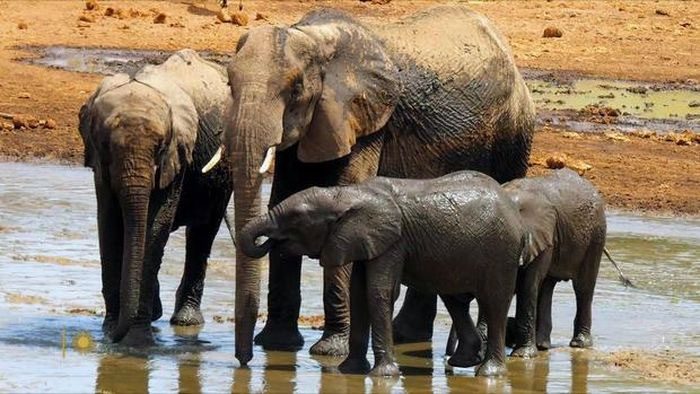How Animal Evolution and Adaptation Can Teach Us Valuable Lessons for Healthy Development.
In the natural world, each species of animal has its unique way of protecting itself from harmful environmental factors. They adapt and evolve to become the most refined versions of themselves. From the perspective of a medical researcher, Dr. David Agus (Professor of Biomedical Engineering at the University of Southern California) has uncovered the secrets of various animal species. Their methods of self-protection can offer humans valuable lessons about health.

Elephants have 20 times more p53 genes than humans—genes that can be beneficial in the fight against cancer. (Photo: CBS).
Technological advancements over the past few decades have extended human lifespan. However, the use of technology such as computers and smartphones has led many to suffer from what are termed the “diseases of civilization.” These include high blood pressure, heart disease, obesity, and more—issues stemming from increased stress, sedentary lifestyles, and unhealthy eating habits.
Professor Agus examines all these issues through the lens of the animal kingdom. He provides insights into why domesticating dogs benefits both them and humans. He explains how the navigational skills of birds can help mitigate cognitive decline. The advantages of studying giraffes for managing human blood pressure are also discussed. Furthermore, elephants and chimpanzees play a crucial role in the battle for brain health, helping to combat cancer and reduce the risk of developing Alzheimer’s disease and cardiovascular issues.
The author writes: “Unlike humans who tend to overprotect, mother chimpanzees are quite lenient. They allow their young to play and fall… Overprotective parenting raises children who are less confident and who grow up with lower self-esteem than what they could gain from the autonomy provided by a balanced upbringing.”
Agus conveys the idea that the maturation processes of bats and ants can teach humans about self-discipline and effort. Rhinos exemplify how small changes in our environment can have significant impacts. Jellyfish and dolphins demonstrate methods for preventing neurological decline. Even groundhogs, shy burrowing creatures, can teach us about connection and friendship. Agus reinforces his claims with research findings, and at the end of each chapter, he includes a summary of ways humans can integrate animal adaptation techniques into modern life.
In an interview with CBS, Professor Agus shared: “The secrets of animals are the underlying transformations that can benefit our health.” The author of The End of Illness suggests that birds can migrate across the globe and navigate to their desired locations. Birds have memories of specific landmarks. Therefore, if humans want to maintain cognitive function for longer periods, they need to engage in activities related to pattern recognition and physical exercise.
Professor David Agus’s research and insights will be compiled in his upcoming book The Book of Animal Secrets. The writing has been described by Sanjay Gupta (author of the bestselling Keep Sharp) as an engaging journey through the animal kingdom, providing readers with unique insights into health.
“Dr. David Agus brilliantly describes the lessons that surround us if we take the time to pay attention: from rhinos teaching us how to exercise to pigeons that can help preserve our memory,” Gupta remarked.


















































